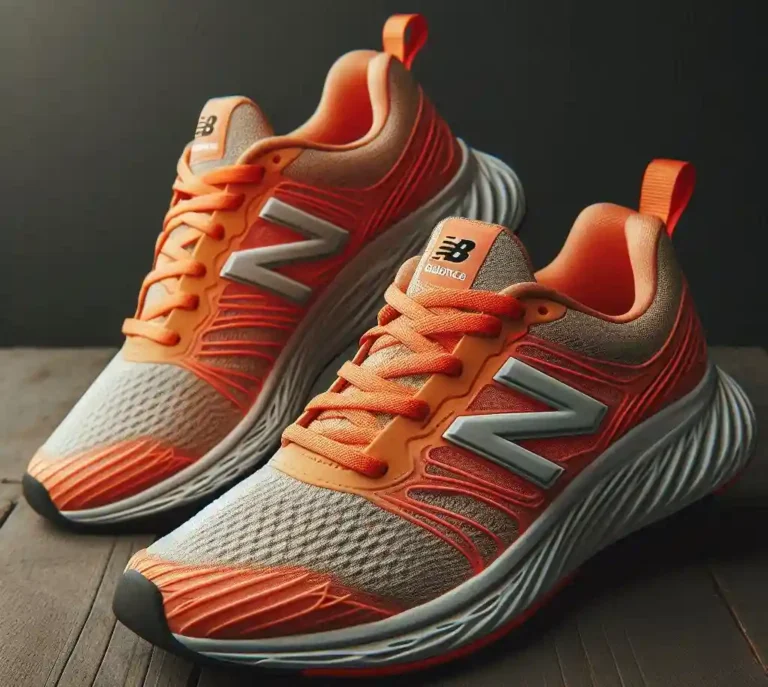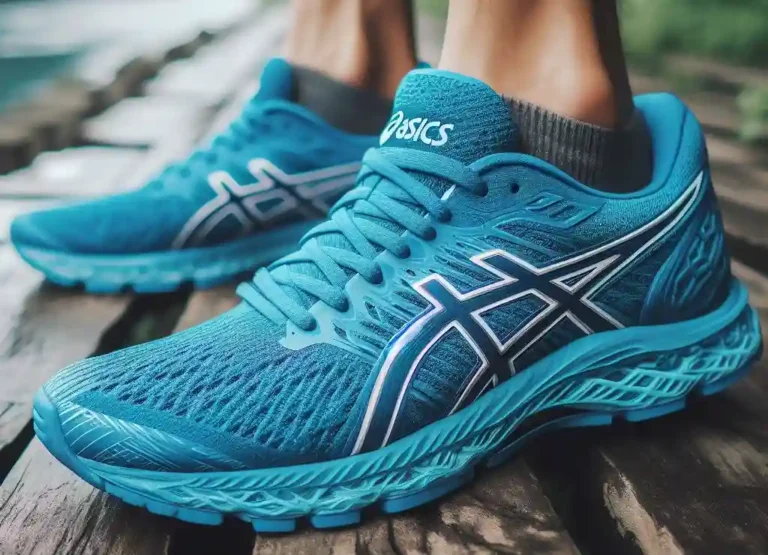Salomon vs Saucony: A Detailed Comparison Guide
Salomon vs Saucony: In this comprehensive comparison, we’ll dissect the unique strengths and weaknesses of Salomon and Saucony, empowering you to make a confident choice for your next trail adventure.
Two brands that consistently rise to the top of the discussion are Salomon and Saucony, each boasting a loyal following among enthusiasts.
For trail runners, the pursuit of the perfect shoe is a never-ending quest.
Salomon vs Saucony: A Quick Overview
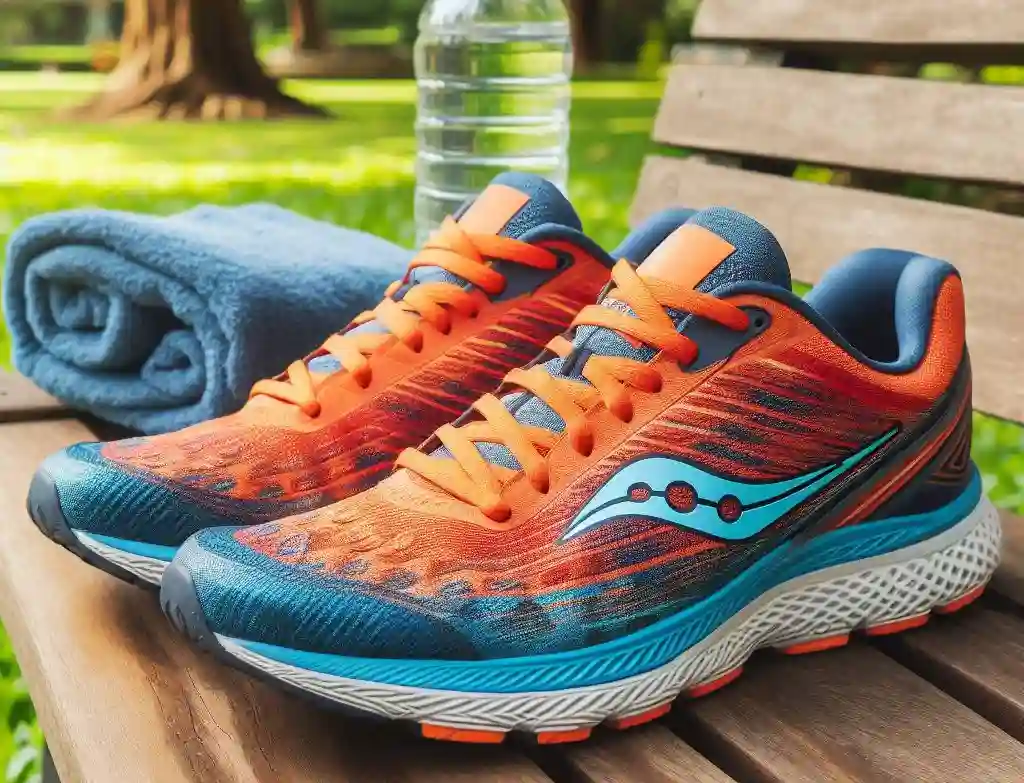
Salomon:
- Known for their aggressive tread patterns and premium grip on various terrain
- Often preferred by runners who tackle technical trails and rugged landscapes
- Typically feature a more substantial and protective build
- Popular models include the Speedcross and S/Lab series
Saucony:
- Focus on a more balanced blend of cushioning, support, and traction
- Geared towards runners who log high mileage on mixed terrain
- Generally offer a more comfortable and flexible ride
- Popular models include the Peregrine and Freedom ISO series
Cushioning and Comfort: Which Brand Offers Better Comfort?

Cushioning
- Salomon: Known for their more minimalist approach to cushioning, Salomon shoes often feature a more responsive and snappy ride. While they still provide adequate cushioning, it’s not their primary focus.
- Saucony: Saucony shoes, on the other hand, prioritize cushioning, offering a more plush and comfortable ride. They feature a range of cushioning systems, including their signature PWRTRAC technology.
- ClimaSalomon Waterproof: A flexible, lightweight, full waterproof bootie to ensure complete weather...
- Advanced Chassis: Placed between the outsole and midsole, this lightweight chassis helps optimize...
- Regular laces: Traditional lacing system with eyelets.
- NEUTRAL CUSHIONING
- Crew run or coffee run alike – every run should start here.
- PWRRUN+
Comfort
- Salomon: Salomon shoes are often narrower and more snug-fitting, which can be beneficial for runners with narrower feet. However, this can also lead to a less comfortable fit for runners with wider feet.
- Saucony: Saucony shoes tend to have a more relaxed fit, accommodating a wider range of foot shapes and sizes. This, combined with their emphasis on cushioning, makes them a great choice for runners who prioritize comfort.
Verdict
If comfort is your top priority, Saucony might be the better choice. However, if you prefer a more responsive and connected ride, Salomon’s more minimalist approach to cushioning might be the way to go.
Support and Stability: Which Shoe Reigns Supreme?
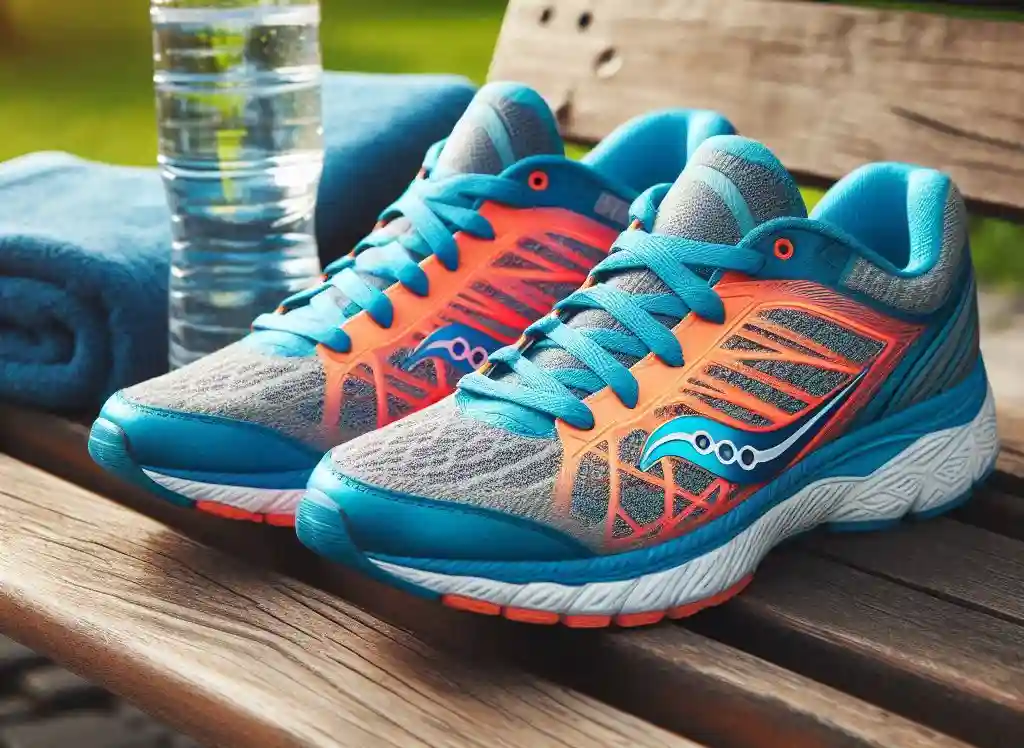
Support
- Salomon:
- Feature a more substantial and supportive build, with a focus on protecting the foot from rugged terrain
- Offer a range of support features, including:
- Endofit: A seamless, sock-like construction that provides a snug, comfortable fit
- Ortholite: A breathable, moisture-wicking material that helps keep feet cool and dry
- Contagrip: A premium outsole material that provides exceptional grip and traction on various terrain
- Saucony:
- Provide adequate support, but with a greater emphasis on flexibility and adaptability
- Feature a range of support systems, including:
- PWRFOAM: A midsole material that provides a smooth, responsive ride
- EVERUN: A topsole material that adds additional cushioning and support
- ISOFIT: A dynamic upper construction that adapts to the foot’s natural movement
Stability
- Salomon:
- Known for their exceptional stability, thanks to their more substantial and supportive build
- Feature a range of stability features, including:
- A more substantial heel counter that provides additional support and stability
- A wider, more stable platform that helps prevent excessive pronation or supination
- Saucony:
- Offer a more neutral, balanced ride, which can be beneficial for runners who need a little less support and stability
- Feature a range of stability features, including:
- A more flexible, adaptive upper construction that helps guide the foot through the gait cycle
- A midsole design that provides a smooth, stable transition from heel to toe
Verdict
If you need a shoe that provides exceptional support and stability, Salomon might be the better choice. Their shoes are designed to tackle rugged terrain and provide a more substantial, supportive build.
Traction and Grip: Which Shoe Stack Up for Hiking?
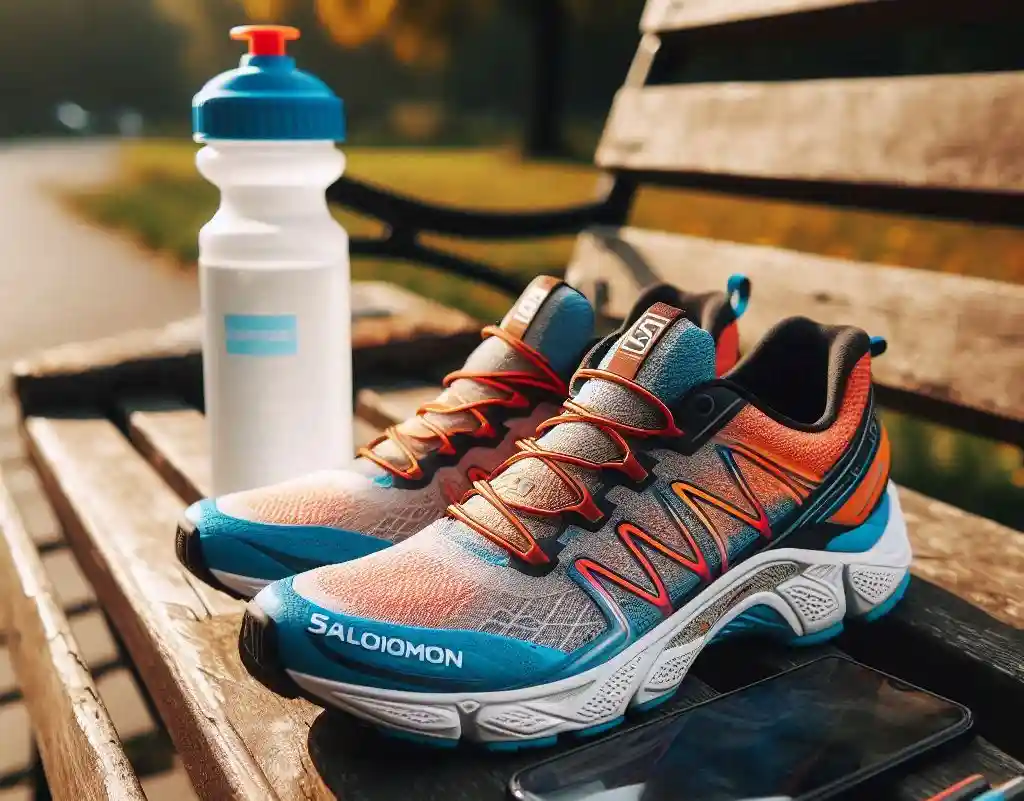
Traction
- Salomon:
- Feature aggressive tread patterns that provide exceptional grip on various terrain, including:
- Contagrip: A premium outsole material that provides exceptional grip and traction on wet, dry, and slippery surfaces
- Deep, aggressive lugs that dig into the ground for maximum traction
- Designed to tackle rugged, technical trails and provide confidence-inspiring grip on:
- Rocky terrain
- Muddy trails
- Steep inclines
- Feature aggressive tread patterns that provide exceptional grip on various terrain, including:
- Saucony:
- Offer a more balanced approach to traction, with a focus on:
- PWRTRAC: A technology that provides a smooth, responsive ride and confident grip on various terrain
- Tri-Flex: A unique outsole design that provides flexibility and adaptability on changing terrain
- Suitable for a wide range of trails, including:
- Smooth, groomed trails
- Moderate, technical trails
- Long-distance, high-mileage runs
- Offer a more balanced approach to traction, with a focus on:
Grip
- Salomon:
- Provide exceptional grip on various terrain, thanks to their aggressive tread patterns and premium outsole materials
- Feature a range of grip-enhancing technologies, including:
- Contagrip: A premium outsole material that provides exceptional grip and traction on wet, dry, and slippery surfaces
- GripFlex: A technology that provides flexibility and adaptability on changing terrain
- Saucony:
- Offer a more balanced approach to grip, with a focus on:
- PWRTRAC: A technology that provides a smooth, responsive ride and confident grip on various terrain
- EVERUN: A topsole material that adds additional cushioning and support, while also enhancing grip and traction
- Suitable for runners who need a shoe that can handle a variety of terrain, including:
- Smooth, groomed trails
- Moderate, technical trails
- Long-distance, high-mileage runs
- Offer a more balanced approach to grip, with a focus on:
Verdict
If you need a shoe that can tackle rugged, technical trails and provide exceptional grip and traction, Salomon might be the better choice. Their shoes are designed to provide confidence-inspiring grip on a wide range of terrain, from rocky trails to muddy inclines.
Weight and Responsiveness: The Verdict Both The Shoes
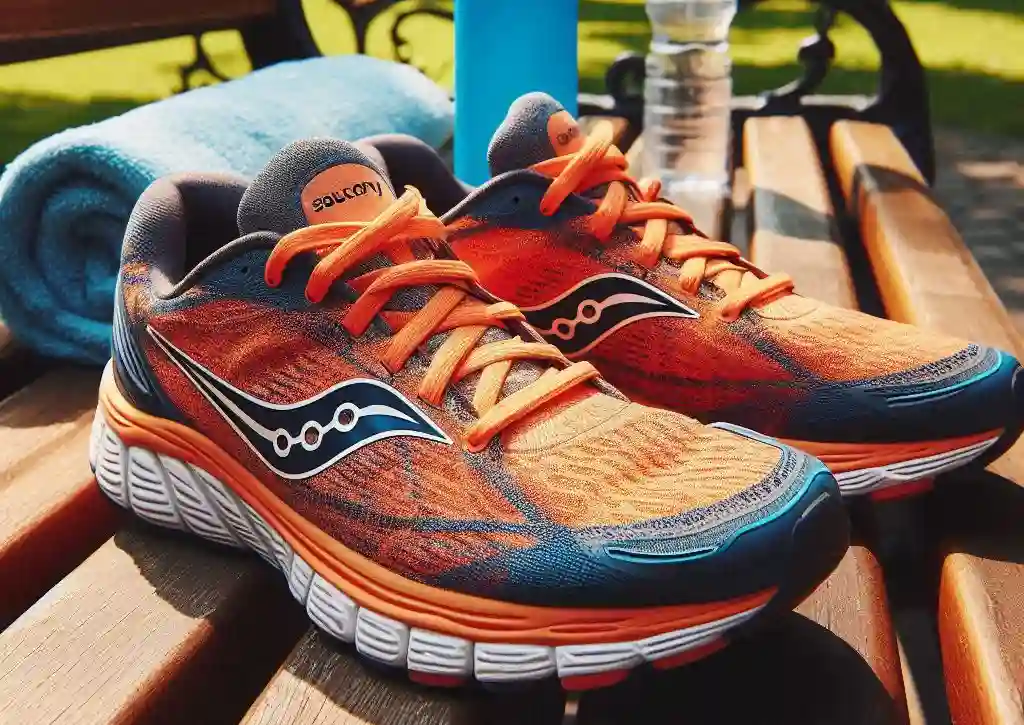
Weight
- Salomon:
- Generally heavier than Saucony shoes, due to their more substantial and supportive build
- Weigh around 10-12 oz (280-340g) for men’s models and 8-10 oz (230-280g) for women’s models
- Heavier weight is due to the use of more substantial materials and a more aggressive outsole design
- Saucony:
- Generally lighter than Salomon shoes, with a focus on flexibility and adaptability
- Weigh around 8-10 oz (230-280g) for men’s models and 6-8 oz (170-230g) for women’s models
- Lighter weight is due to the use of lighter materials and a more minimalist approach to design
Responsiveness
- Salomon:
- Feature a more substantial and supportive build, which can make them feel less responsive and more sluggish
- However, their aggressive outsole design and Contagrip technology provide a responsive and confident ride on various terrain
- Suitable for runners who prioritize support and stability over responsiveness
- Saucony:
- Offer a more responsive and adaptable ride, thanks to their lighter weight and more flexible design
- Feature a range of responsive technologies, including PWRTRAC and EVERUN, which provide a smooth and responsive ride
- Suitable for runners who prioritize speed and agility over support and stability
Verdict
If you prioritize support and stability over weight and responsiveness, Salomon might be the better choice. Their shoes are designed to provide exceptional support and stability on rugged terrain, even if it means sacrificing some responsiveness.
Breathability and Ventilation: Keeping Your Feet Cool and Dry
Breathability
- Salomon:
- Feature a range of breathable materials, including:
- Mesh panels for ventilation and airflow
- Breathable upper materials, such as Ortholite and Endofit
- Designed to provide a comfortable and breathable fit, even in warm and humid conditions
- However, their more substantial and supportive build can make them feel less breathable than Saucony shoes
- Feature a range of breathable materials, including:
- Saucony:
- Offer exceptional breathability, thanks to their lightweight and flexible design
- Feature a range of breathable materials, including:
- Mesh panels for ventilation and airflow
- Lightweight and breathable upper materials, such as FlexFilm and ISOFIT
- Designed to provide a comfortable and breathable fit, even during high-intensity activities
Ventilation
- Salomon:
- Feature a range of ventilation systems, including:
- Airy mesh panels for ventilation and airflow
- Ventilation channels in the outsole for added airflow
- Designed to provide a comfortable and ventilated ride, even on long and demanding runs
- However, their more substantial and supportive build can make them feel less ventilated than Saucony shoes
- Feature a range of ventilation systems, including:
- Saucony:
- Offer exceptional ventilation, thanks to their lightweight and flexible design
- Feature a range of ventilation systems, including:
- Airy mesh panels for ventilation and airflow
- Ventilation channels in the outsole for added airflow
- Designed to provide a comfortable and ventilated ride, even during high-intensity activities
Verdict
If you prioritize breathability and ventilation, Saucony might be the better choice. Their shoes are designed to provide exceptional airflow and ventilation, making them suitable for runners who need a shoe that can keep up with their fast-paced lifestyle.
Durability and Longevity: Which Shoe Will Last Longer?
Durability
- Salomon:
- Known for their exceptional durability and ability to withstand rough terrain and harsh conditions
- Feature a range of durable materials, including:
- Contagrip: A premium outsole material that provides exceptional grip and traction on various terrain
- Ortholite: A breathable, moisture-wicking material that helps keep feet cool and dry
- Designed to provide a durable and long-lasting ride, even on rugged and demanding terrain
- Saucony:
- Offer a more balanced approach to durability, with a focus on flexibility and adaptability
- Feature a range of durable materials, including:
- PWRTRAC: A technology that provides a smooth, responsive ride and confident grip on various terrain
- EVERUN: A topsole material that adds additional cushioning and support
- Designed to provide a durable and long-lasting ride, but may not be as rugged as Salomon shoes
Longevity
- Salomon:
- Known for their exceptional longevity, with many runners logging hundreds of miles without issue
- Feature a range of durable materials and construction methods that help extend the life of the shoe
- Designed to provide a long-lasting ride, even for runners who log high mileage
- Saucony:
- Offer a more balanced approach to longevity, with a focus on flexibility and adaptability
- Feature a range of durable materials and construction methods that help extend the life of the shoe
- Designed to provide a long-lasting ride, but may not be as durable as Salomon shoes
Verdict
If you prioritize durability and longevity, Salomon might be the better choice. Their shoes are designed to provide exceptional durability and longevity, even on rugged and demanding terrain.
Style and Aesthetics: Which Shoe Looks and Feels Better?
Style
- Salomon:
- Known for their bold and aggressive styling, with a focus on functionality and performance
- Feature a range of colors and designs, including:
- Bright and bold colors, such as orange and yellow
- Dark and muted colors, such as black and grey
- Designed to make a statement on the trail, with a focus on performance and functionality
- Saucony:
- Offer a more understated and subtle approach to style, with a focus on comfort and versatility
- Feature a range of colors and designs, including:
- Neutral colors, such as blue and green
- Bold and bright colors, such as red and orange
- Designed to provide a comfortable and versatile ride, with a focus on everyday wear
Aesthetics
- Salomon:
- Feature a more aggressive and angular design, with a focus on performance and functionality
- Have a more substantial and supportive build, with a focus on stability and support
- Designed to provide a confident and capable ride, with a focus on rugged terrain
- Saucony:
- Offer a more streamlined and sleek design, with a focus on comfort and versatility
- Have a more lightweight and flexible build, with a focus on everyday wear
- Designed to provide a comfortable and adaptable ride, with a focus on daily training
Verdict
If you prioritize style and aesthetics, the choice between Salomon and Saucony will depend on your personal preferences. If you prefer a bold and aggressive style, Salomon might be the better choice.
The Final Step: Which Shoe Reigns Supreme in Our Head-to-Head Comparison?
Salomon
- Pros:
- Exceptional support and stability on rugged terrain
- Aggressive tread pattern provides confident grip and traction
- Durable and long-lasting, with a focus on performance and functionality
- Cons:
- Heavier and more substantial build may feel less responsive and less breathable
- May not be as comfortable or adaptable for everyday wear
Saucony
- Pros:
- Lightweight and flexible build provides a comfortable and adaptable ride
- Balanced approach to support and stability, with a focus on everyday wear
- More breathable and responsive, with a focus on comfort and versatility
- Cons:
- May not provide the same level of support and stability as Salomon shoes
- Less durable and long-lasting, with a focus on comfort and adaptability
The Verdict
Ultimately, the choice between Salomon and Saucony shoes will depend on your individual needs and preferences as a runner. If you prioritize support and stability on rugged terrain, Salomon might be the better choice. However, if you prefer a more comfortable and adaptable ride for everyday wear, Saucony could be the way to go.
Here are some final tips to consider
- If you’re a trail runner who needs a shoe that can handle rugged terrain, Salomon might be the better choice.
- If you’re a road runner who needs a shoe that can handle high mileage, Saucony might be the better choice.
- If you’re a casual runner who needs a shoe that can handle everyday wear, Saucony might be the better choice.
- If you’re a serious runner who needs a shoe that can handle intense training, Salomon might be the better choice.
FAQs
Q: Which brand is better for trail running?
A: Salomon is generally considered a better choice for trail running due to their aggressive tread pattern and more substantial build.
Q: Which brand is better for road running?
A: Saucony is generally considered a better choice for road running due to their more cushioned and responsive ride.
Q: Which brand is more durable?
A: Salomon shoes are generally considered more durable and long-lasting due to their more substantial build and aggressive tread pattern.
Q: Which brand is more comfortable?
A: Saucony shoes are generally considered more comfortable due to their more cushioned and adaptable ride.
Q: Which brand is better for beginners?
A: Saucony shoes are generally considered a better choice for beginners due to their more comfortable and adaptable ride.
Q: Which brand is better for experienced runners?
A: Salomon shoes are generally considered a better choice for experienced runners due to their more substantial build and aggressive tread pattern.
Q: Can I wear Salomon shoes for road running?
A: While it’s possible to wear Salomon shoes for road running, they may not be the best choice due to their more substantial build and aggressive tread pattern.
Q: Can I wear Saucony shoes for trail running?
A: While it’s possible to wear Saucony shoes for trail running, they may not be the best choice due to their more cushioned and responsive ride.
Q: Which brand offers more color options?
A: Both Salomon and Saucony offer a range of color options, but Salomon is known for their bold and bright colors.
Q: Which brand is more expensive?
A: Salomon shoes tend to be more expensive than Saucony shoes, especially their high-end models.
Q: Which brand offers better customer service?
A: Both Salomon and Saucony offer good customer service, but Salomon is known for their more comprehensive warranty and return policy.

Mia Smith is the founder of Shoe Storyteller, a blog that celebrates the art and stories behind shoes. With a passion for fashion and a flair for storytelling, Mia brings a unique perspective to the world of footwear.


